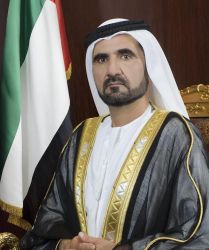Ismail III
| Ismail III | |||||
|---|---|---|---|---|---|
| King of al-Fahraan Mukarrib of the Hasidhmawt Sultan of Amran and Khimyariyyah Emir of Zabral | |||||
 Ismail appearing during a military parade | |||||
| Reign | 29 November 1988 - 11 December 1996 | ||||
| Predecessor | Office Reestablished | ||||
| Successor | Monarchy Abolished Hazea I as Queen of Fahran Hassan El Gheisari as President of the Republic | ||||
| Born | 1 April 1957 Tel Imradhil, Fahran | ||||
| Died | 31 December 1996 Nirvan, Fahran | ||||
| Spouse | Oihana Victoria | ||||
| Issue | Hazea I | ||||
| |||||
| House | Aidarus | ||||
| Father | Abd ar-Rahman ibn Abdullah | ||||
| Mother | Havîn bint Ardalan | ||||
| Religion | Malufi Irsad | ||||
Ismail III (Gheiravic: إسماعيل بن عبد الرحمن, Transliteration: Ismā’īl ibn ʿAbd ar-Raḥman al-‘Aydarūs, 1 April 1957 - 31 December 1996) was the last recognized King of Fahran, ruling from 29 November 1988 until his forced abdication on 11 December 1996 in the wake of the December Intifada. His reign saw a continued decline in the prestige of Fahran, which had effectively ceased to be a regional power in the aftermath of the Hisari Wars, and witnessed a pair of severe economic recessions in 1991 and 1995 that left his government teetering on the brink of collapse. Despite the advice of his liberal-minded Prime Minister Mohammed Moghadam, appointed at the close of 1991, Ismail was slow to implement the democratic reforms that had been promised when Sabir Afzal Rahmani had stepped down as dictator in 1988 and, after a quarrel, Moghadam was dismissed and replaced with the more conservative Daoud al-Ghazawi. He was notably suspicious of neoliberal trade policies, and maintained high tariffs and levies throughout his reign.